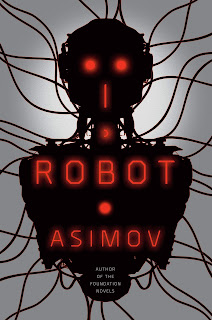Sure. At the moment, we're talking about using AI to generate words or art for us (though I guarantee that AI is already in use a ton of other places that impact you already - you just don't know it.) It's a big gap between cribbing someone else's work and dodging Skynet.
I am already using AI (specifically Chat GPT in this case) to write with. It's for the day job where I'm part of a research group working on using the power of AI to transform our business model. I'm taking classes from those smarter and more experienced in the arena that I am so I can learn how to wrest forth the best of what AI has to offer. Benefit: I'm producing technical writing content for clients that is roughly 1/3 AI written based on prompts I give the AI. Problem: AI writes like a drunk sixth grader. Maybe a seventh grader. There isn't much that AI writes that can remain untouched. I cannot simply copy and paste wholesale and move on. Second problem: I MUST know my subject matter because AI is pulling information from the web. Some of that information is outdated. Some is dead wrong. Result: AI has shifted me to being a knowledge worker rather than someone who sits around and thinks up words to write for clients. It's not all bad. Drafting is my weak spot. Editing is my strong suite.
AI favors writer/editors who have a grasp of their subject matter and who know how to match a brand's tone and voice. The moral of the story is that no matter how much or how little AI content I include in a piece of work, I will always have to tweak it or rewrite it. Always.
Chat GPT is good at distilling information from the dark, dusty corners of the WWW and bringing back something reasonably cogent. Mostly. To generate the best content, you'll need to understand what Chat GPT needs as a prompt. It's powerful for nonfiction. It's a little less useful for fiction. Like too many of us, it seems to want to avoid conflict.
I'm experimenting with AI (Sudowrite, in this case) in novel generation. I'm finding it is a much better fit for fiction. I do not like it at all for nonfiction. At least not the kind I'm working on where I need to bring hard data to a paper. Sudowrite also requires super robust prompts that are loaded with details around your story. There are classes available for this. Some are free. If the tech interests you, the classes are worth the time. Benefit: Collaboration with that drunk middle schooler I mentioned earlier. Sudowrite takes a prompt and generates 2-3 text options. Problem: The writing is pretty terrible. Unless you declare a POV character in your prompt, Sudowrite defaults to omniscient POV. It's all tell and no show. It's pretty bare bones. The power of Sudowrite is that you can change all of that with different options in the interface. Maybe you want more action. Sudowrite can rewrite for more action. Or more description. Or more intensity. Sudowrite isn't afraid of conflict or blood. And as you write or paste in your own writing, Sudowrite learns to match your style a little better.
Sudowrite isn't capable of generating a novel without a writer to knit everything together and direct the story. Like one of the instructors said in class - think of AI as a junior writer. You're still senior. You know the craft. You know the story and the characters. You will always have to supervise and direct the junior writer's efforts. Just like with Chat GPT, I cannot take big chunks of text from Sudowrite and import it to my WIP. Just can't. I can pull a cool turn of phrase or a sentence or two. But mostly, Sudowrite's power is in making me question how I'm thinking about my story and the direction it needs to go. I have not successfully completed a book with it. I do know people who have and who continue to use it to spur their writing.
So. AI. Evil? Benign? Beneficent? Eh. Yes. To all of it. There will be good. There will be bad. Most of it will be neutral. But AI is a genie that escaped the bottle. There's no getting it back in there, now. We're going to have to learn to cope with it. The way that generations before us had to learn to cope with the evil televisions rotting our brains and making us all go blind because we sat too close. Or computer games. Or cell phones. Or whatever other technology destroyed hearts and minds and the modern family and civilization as we know it.
I do believe that AI will change the shape of work. It already is and has. You can figure out how to work with it, or you can ignore it like most of us ignored crypto. I expect that publishing will break up into camps. One will expound the evils, the other will tout the benefits, and somewhere in the middle, the rest of us will just try to finish our stories and get them out into the world.

